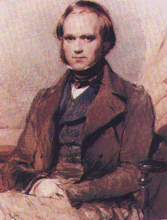
Darwin recognized that only a fraction of the number of living beings leave behind a fossil record. He realized, for example, that organisms with “wholly soft” bodies were not likely to be preserved, and that shells and bones will decay and disappear if they are deposited where sediment is not accumulating, and that organisms living in shallow oceans were more likely to be preserved that those living on land.
Even buried remains might not survive to become fossils if their remains are later “dissolved by the percolation of rainwater”. These factors along with the fact that only a small portion of the surface of the earth had been explored in Darwin’s day all contributed to what Darwin termed, “the poorness of our palaeontological collections” and the imperfection of the geological record.


No comments:
Post a Comment